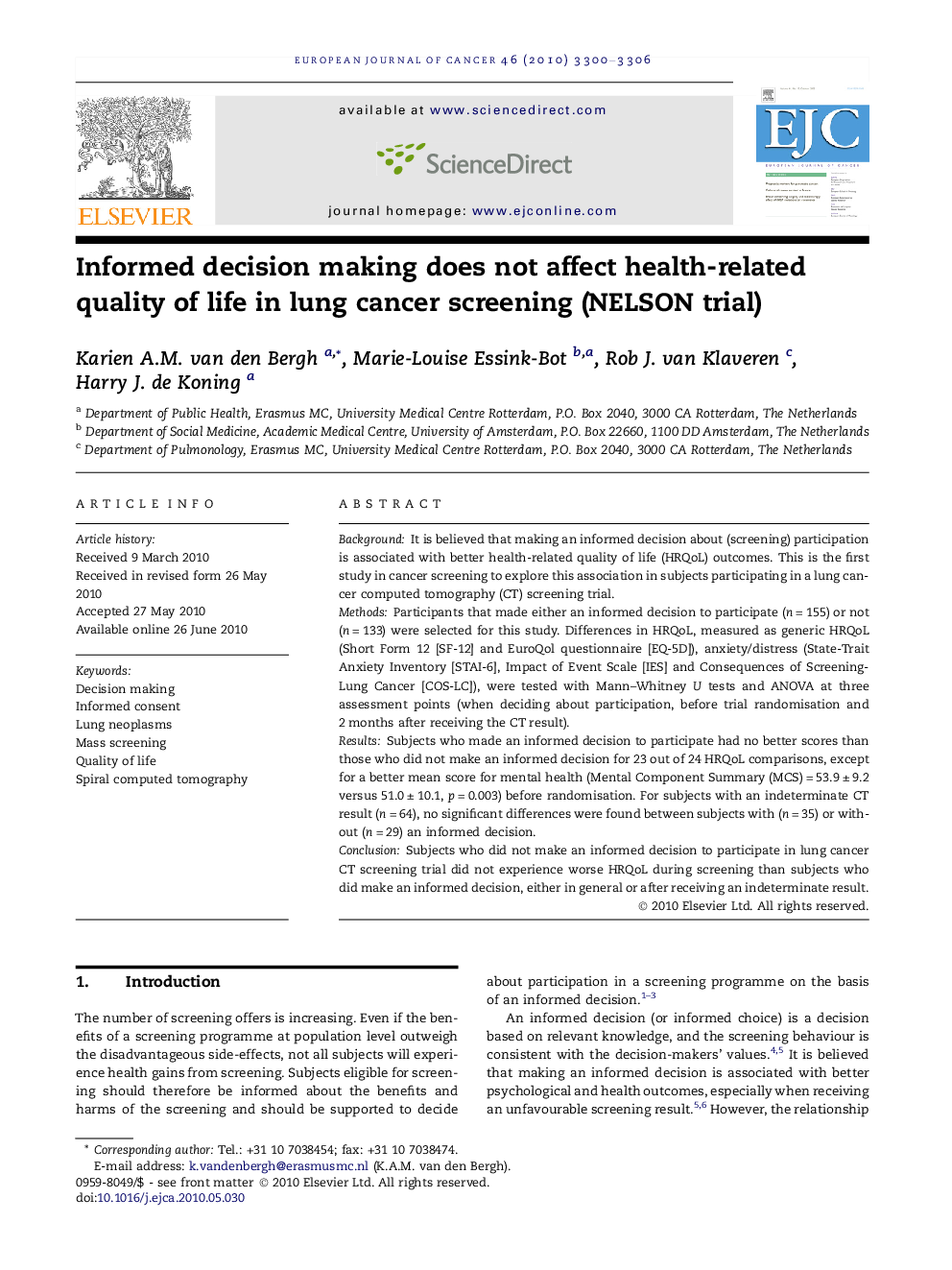| Article ID | Journal | Published Year | Pages | File Type |
|---|---|---|---|---|
| 2123834 | European Journal of Cancer | 2010 | 7 Pages |
BackgroundIt is believed that making an informed decision about (screening) participation is associated with better health-related quality of life (HRQoL) outcomes. This is the first study in cancer screening to explore this association in subjects participating in a lung cancer computed tomography (CT) screening trial.MethodsParticipants that made either an informed decision to participate (n = 155) or not (n = 133) were selected for this study. Differences in HRQoL, measured as generic HRQoL (Short Form 12 [SF-12] and EuroQol questionnaire [EQ-5D]), anxiety/distress (State-Trait Anxiety Inventory [STAI-6], Impact of Event Scale [IES] and Consequences of Screening-Lung Cancer [COS-LC]), were tested with Mann–Whitney U tests and ANOVA at three assessment points (when deciding about participation, before trial randomisation and 2 months after receiving the CT result).ResultsSubjects who made an informed decision to participate had no better scores than those who did not make an informed decision for 23 out of 24 HRQoL comparisons, except for a better mean score for mental health (Mental Component Summary (MCS) = 53.9 ± 9.2 versus 51.0 ± 10.1, p = 0.003) before randomisation. For subjects with an indeterminate CT result (n = 64), no significant differences were found between subjects with (n = 35) or without (n = 29) an informed decision.ConclusionSubjects who did not make an informed decision to participate in lung cancer CT screening trial did not experience worse HRQoL during screening than subjects who did make an informed decision, either in general or after receiving an indeterminate result.
